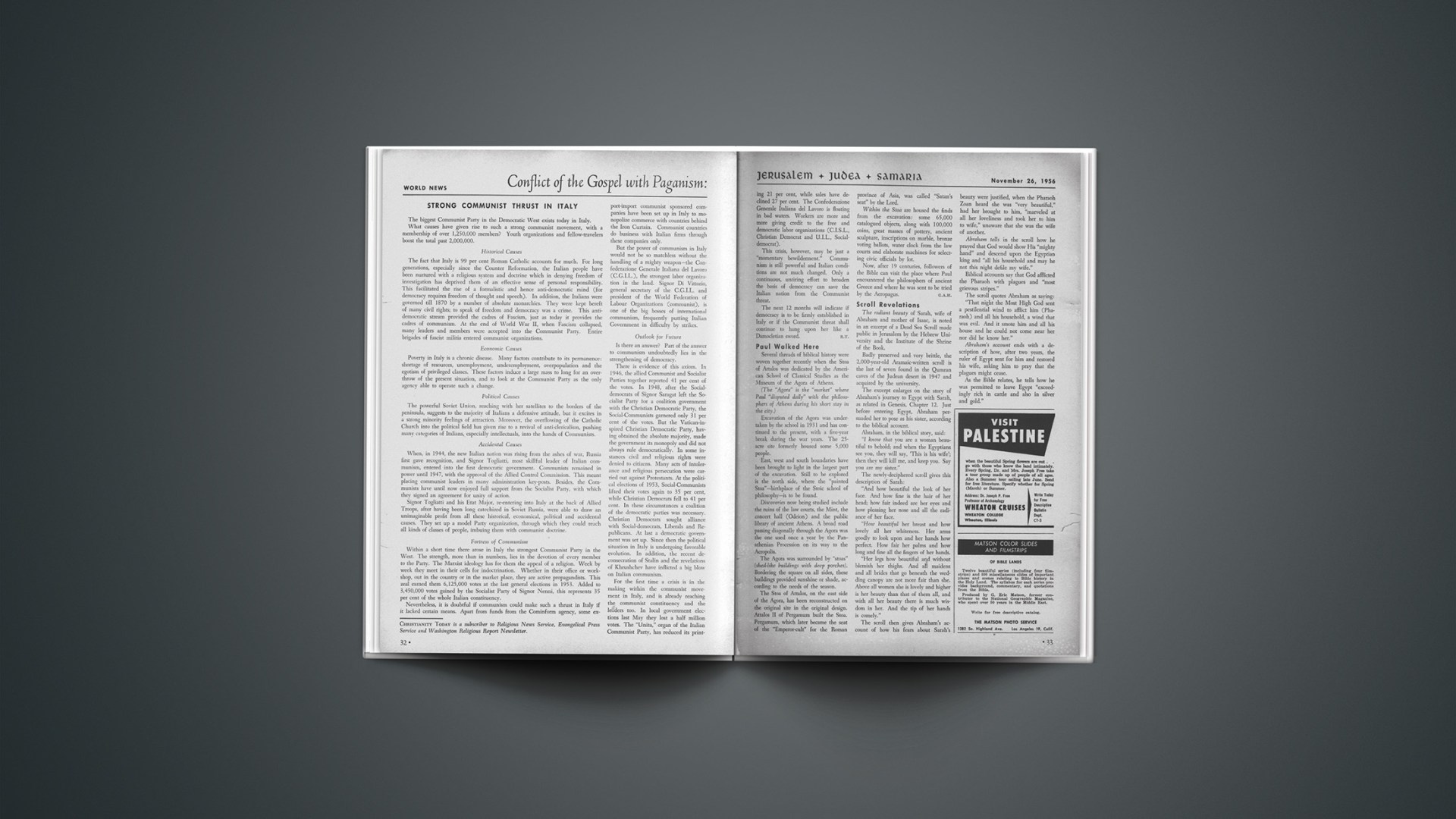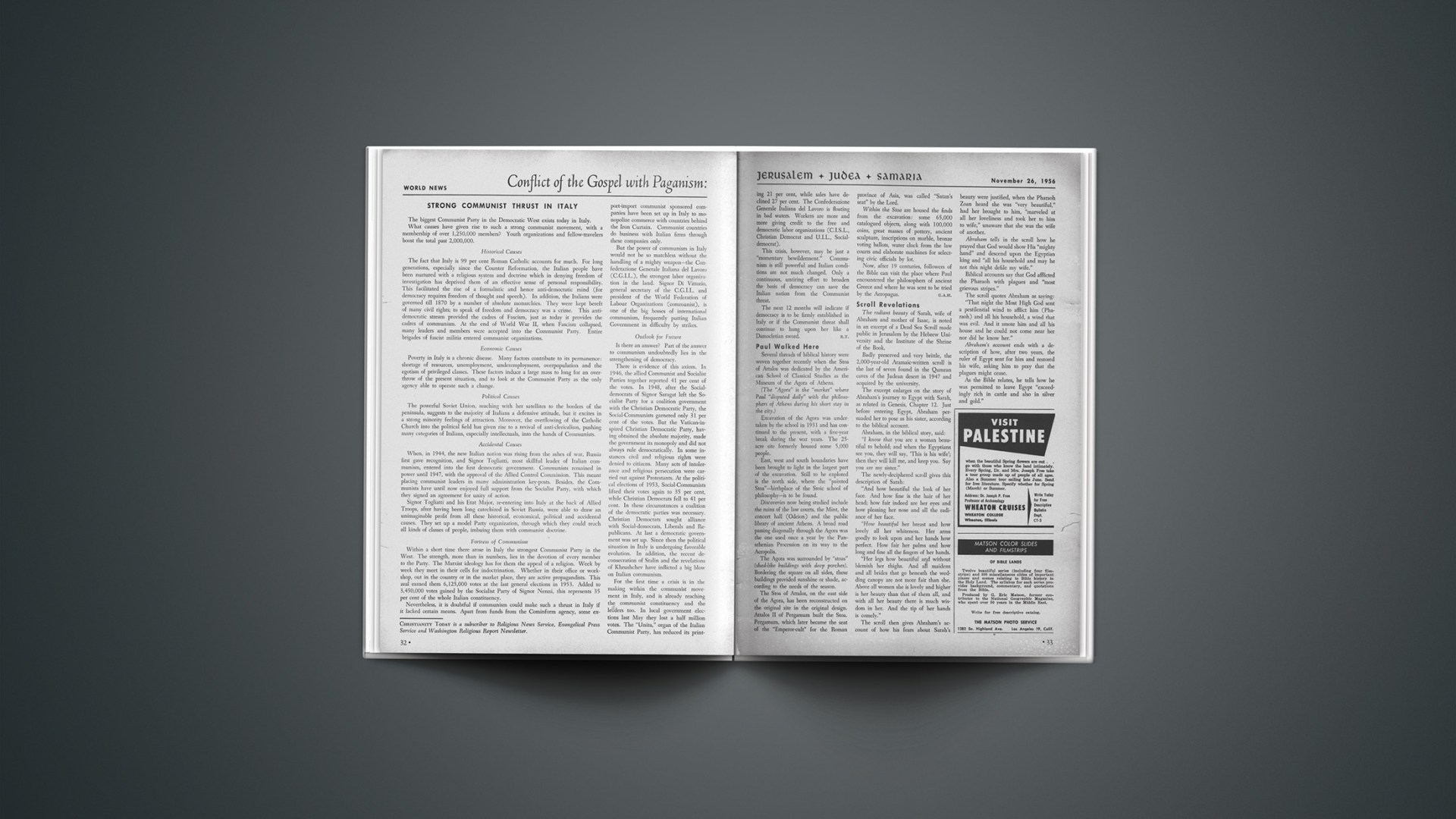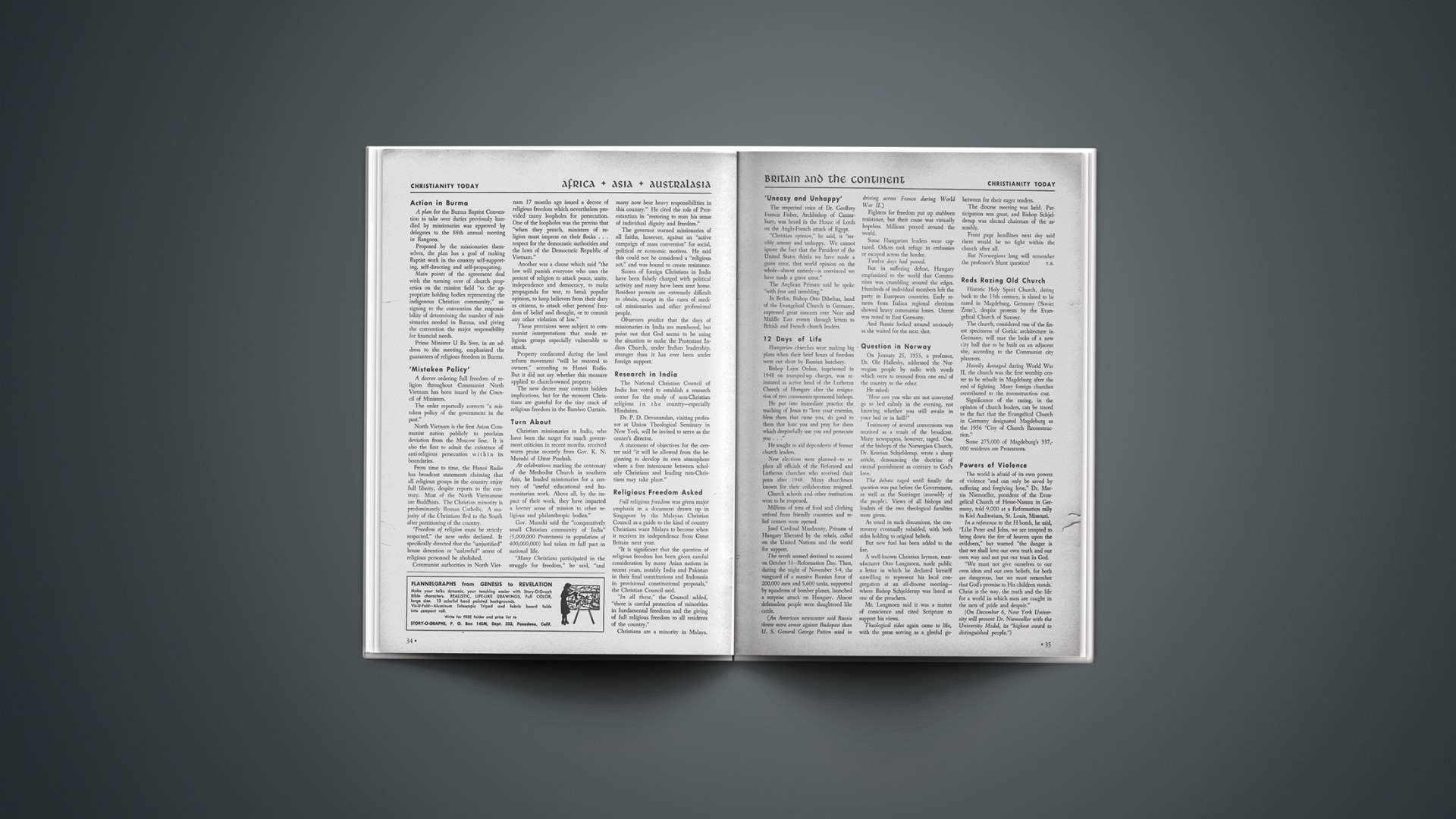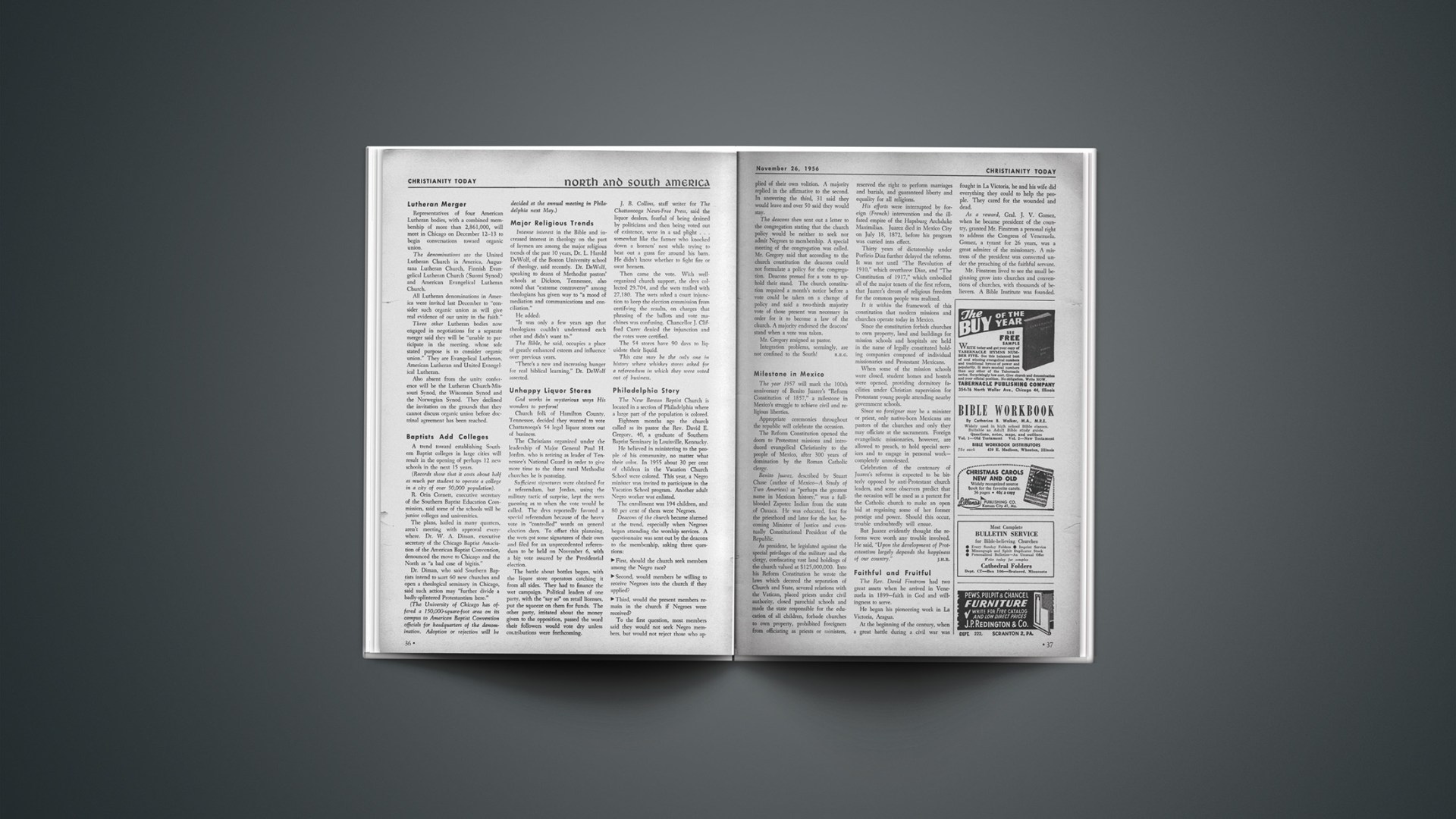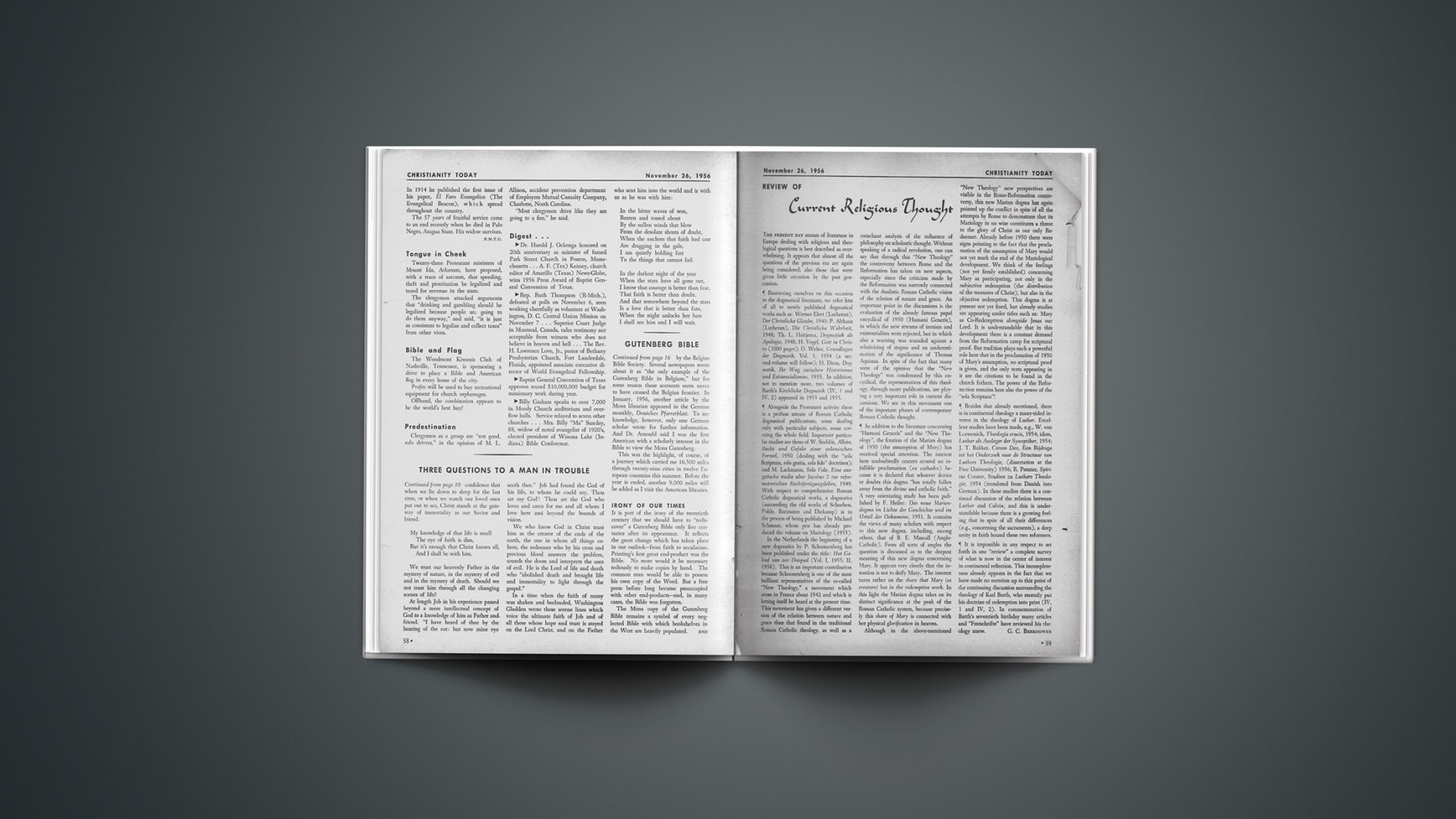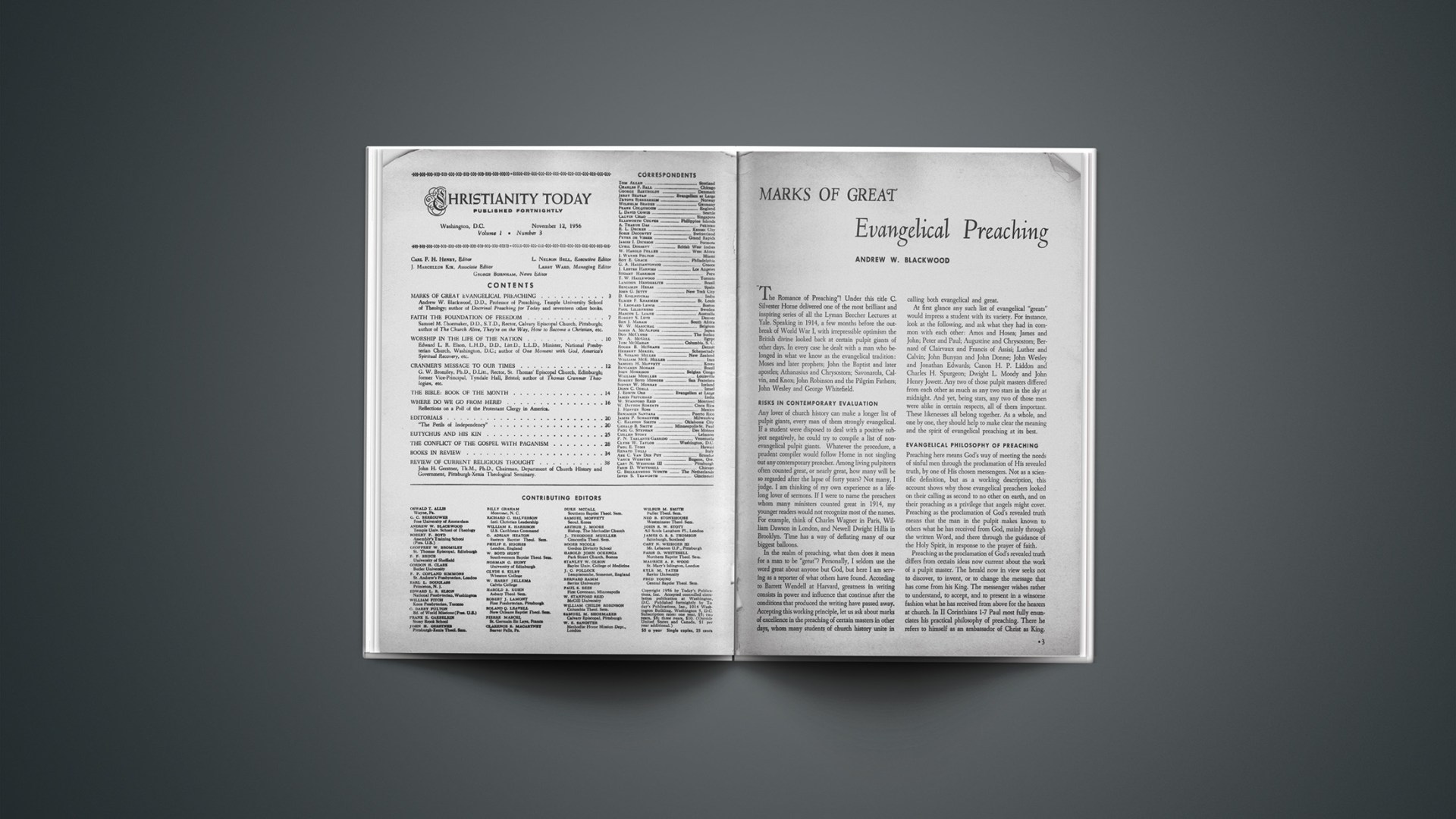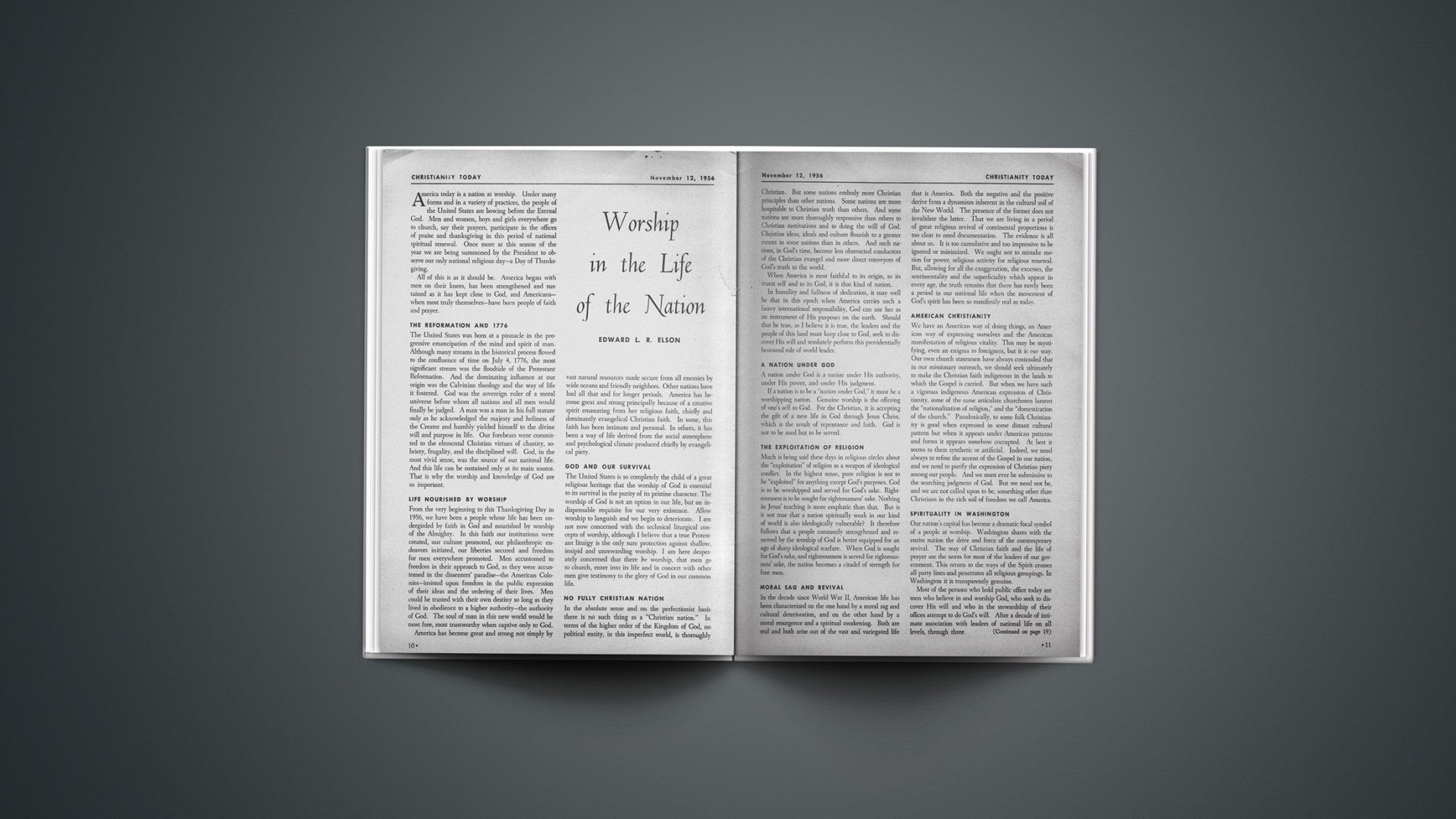WORLD NEWS
Strong Communist Thrust In Italy
The biggest Communist Party in the Democratic West exists today in Italy.
What causes have given rise to such a strong communist movement, with a membership of over 1,250,000 members? Youth organizations and fellow-travelers boost the total past 2,000,000.
Historical Causes
The fact that Italy is 99 per cent Roman Catholic accounts for much. For long generations, especially since the Counter Reformation, the Italian people have been nurtured with a religious system and doctrine which in denying freedom of investigation has deprived them of an effective sense of personal responsibility. This facilitated the rise of a formalistic and hence anti-democratic mind (for democracy requires freedom of thought and speech). In addition, the Italians were governed till 1870 by a number of absolute monarchies. They were kept bereft of many civil rights; to speak of freedom and democracy was a crime. This antidemocratic stream provided the cadres of Fascism, just as today it provides the cadres of communism. At the end of World War II, when Fascism collapsed, many leaders and members were accepted into the Communist Party. Entire brigades of fascist militia entered communist organizations.
Economic Causes
Poverty in Italy is a chronic disease. Many factors contribute to its permanence: shortage of resources, unemployment, underemployment, overpopulation and the egotism of privileged classes. These factors induce a large mass to long for an overthrow of the present situation, and to look at the Communist Party as the only agency able to operate such a change.
Political Causes
The powerful Soviet Union, reaching with her satellites to the borders of the peninsula, suggests to the majority of Italians a defensive attitude, but it excites in a strong minority feelings of attraction. Moreover, the overflowing of the Catholic Church into the political field has given rise to a revival of anti-clericalism, pushing many categories of Italians, especially intellectuals, into the hands of Communists.
Accidental Causes
When, in 1944, the new Italian nation was rising from the ashes of war, Russia first gave recognition, and Signor Togliatti, most skillful leader of Italian communism, entered into the first democratic government. Communists remained in power until 1947, with the approval of the Allied Control Commission. This meant placing communist leaders in many administration key-posts. Besides, the Communists have until now enjoyed full support from the Socialist Party, with which they signed an agreement for unity of action.
Signor Togliatti and his Etat Major, re-entering into Italy at the back of Allied Troops, after having been long catechized in Soviet Russia, were able to draw an unimaginable profit from all these historical, economical, political and accidental causes. They set up a model Party organization, through which they could reach all kinds of classes of people, imbuing them with communist doctrine.
Fortress Of Communism
Within a short time there arose in Italy the strongest Communist Party in the West. The strength, more than in numbers, lies in the devotion of every member to the Party. The Marxist ideology has for them the appeal of a religion. Week by week they meet in their cells for indoctrination. Whether in their office or workshop, out in the country or in the market place, they are active propagandists. This zeal earned them 6,125,000 votes at the last general elections in 1953. Added to 3,450,000 votes gained by the Socialist Party of Signor Nenni, this represents 35 per cent of the whole Italian constituency.
Nevertheless, it is doubtful if communism could make such a thrust in Italy if it lacked certain means. Apart from funds from the Cominform agency, some export-import communist sponsored companies have been set up in Italy to monopolize commerce with countries behind the Iron Curtain. Communist countries do business with Italian firms through these companies only.
But the power of communism in Italy would not be so matchless without the handling of a mighty weapon—the Confederazione Generale Italiana del Lavoro (C.G.I.L.), the strongest labor organization in the land. Signor Di Vittorio, general secretary of the C.G.I.L. and president of the World Federation of Labour Organizations (communist), is one of the big bosses of international communism, frequently putting Italian Government in difficulty by strikes.
CHRISTIANITY TODAYis a subscriber to Religious News Service, Evangelical Press Service and Washington Religious Report Newsletter.
Outlook For Future
Is there an answer? Part of the answer to communism undoubtedly lies in the strengthening of democracy.
There is evidence of this axiom. In 1946, the allied Communist and Socialist Parties together reported 41 per cent of the votes. In 1948, after the Socialdemocrats of Signor Saragat left the Socialist Party for a coalition government with the Christian Democratic Party, the Social-Communists garnered only 31 per cent of the votes. But the Vatican-inspired Christian Democratic Party, having obtained the absolute majority, made the government its monopoly and did not always rule democratically. In some instances civil and religious rights were denied to citizens. Many acts of intolerance and religious persecution were carried out against Protestants. At the political elections of 1953, Social-Communists lifted their votes again to 35 per cent, while Christian Democrats fell to 41 per cent. In these circumstances a coalition of the democratic parties was necessary. Christian Democrats sought alliance with Social-democrats, Liberals and Republicans. At last a democratic government was set up. Since then the political situation in Italy is undergoing favorable evolution. In addition, the recent deconsecration of Stalin and the revelations of Khrushchev have inflicted a big blow on Italian communism.
For the first time a crisis is in the making within the communist movement in Italy, and is already reaching the communist constituency and the leaders too. In local government elections last May they lost a half million votes. The “Unita,” organ of the Italian Communist Party, has reduced its printing 21 per cent, while sales have declined 27 per cent. The Confederazione Generale Italiana del Lavoro is floating in bad waters. Workers are more and more giving credit to the free and democratic labor organizations (C.I.S.L., Christian Democrat and U.I.L., Social-democrat).
This crisis, however, may be just a “momentary bewilderment.” Communism is still powerful and Italian conditions are not much changed. Only a continuous, untiring effort to broaden the basis of democracy can save the Italian nation from the Communist threat.
The next 12 months will indicate if democracy is to be firmly established in Italy or if the Communist threat shall continue to hang upon her like a Damocletian sword.
R.T.

